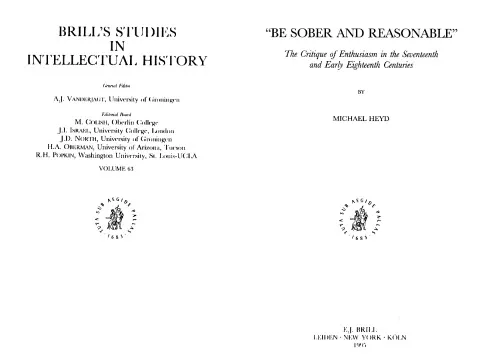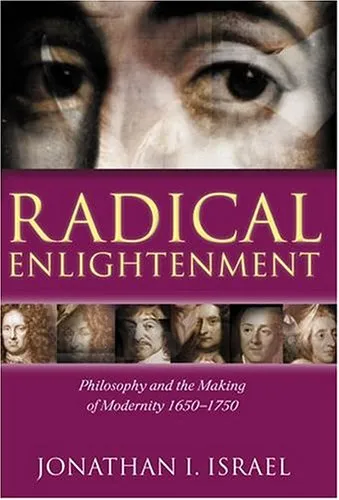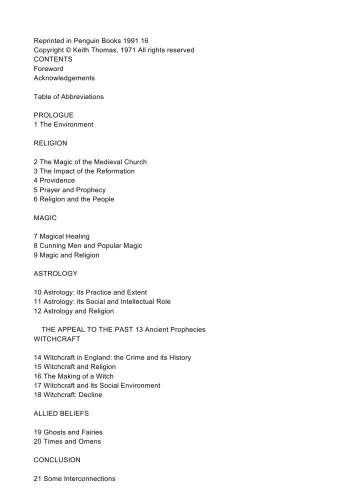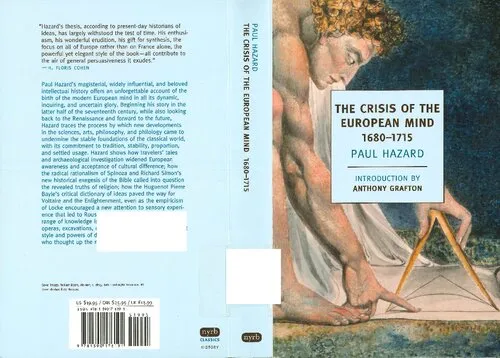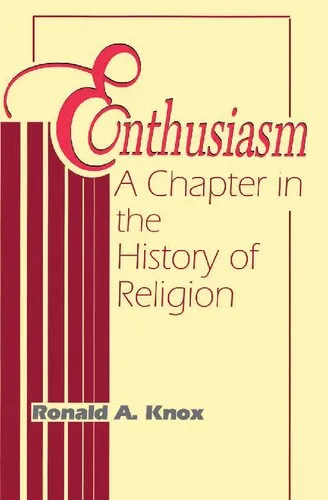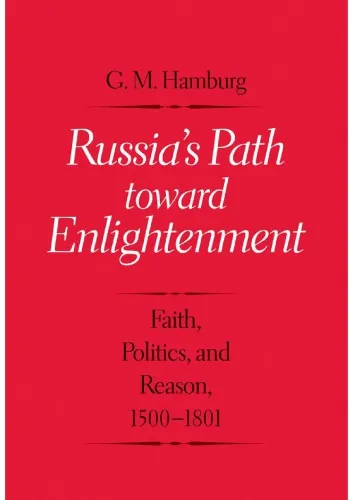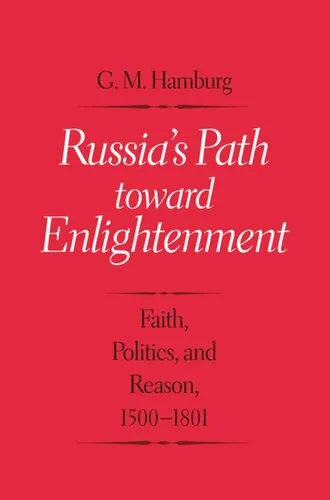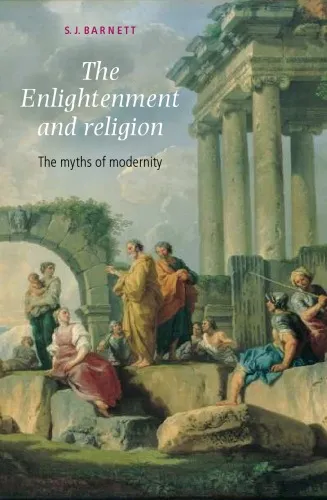''Be Sober and Reasonable'': The Critique of Enthusiasm in the Seventeenth and Early Eighteenth Centuries
4.0
Reviews from our users

You Can Ask your questions from this book's AI after Login
Each download or ask from book AI costs 2 points. To earn more free points, please visit the Points Guide Page and complete some valuable actions.Related Refrences:
Introduction to "Be Sober and Reasonable"
Welcome to an in-depth exploration of "Be Sober and Reasonable": The Critique of Enthusiasm in the Seventeenth and Early Eighteenth Centuries, a critical work that delves into the complex intellectual landscape of the late Renaissance and the Enlightenment. This book, written by Michael Heyd, offers an insightful examination of the fear and skepticism surrounding religious enthusiasm during a transformative period in European history.
Detailed Summary of the Book
In "Be Sober and Reasonable," Michael Heyd examines the heated debates around religious enthusiasm that took hold during the 17th and early 18th centuries. This era was marked by religious upheaval, leading many to become wary of intense expressions of faith perceived as irrational or fanatical. The book provides a thorough analysis of how philosophers, theologians, and other intellectuals responded to and sought to control the influence of enthusiasm. Heyd considers the reactions of key figures such as John Locke, who sought a balance between reason and emotion, needing both for a healthy religious life. By scrutinizing the works and thoughts of these seminal thinkers, the book captures the tension between emerging rationality and traditional religious fervor.
Crucially, Heyd illustrates that the critique of enthusiasm wasn't simply an attack on religion but a broader concern about social order and authority. He delves into the writings of figures who argued for moderation and used the rhetoric of sobriety and reason to assert control over what was seen as chaotic, uncontrolled enthusiasm. The book is structured to methodically unveil the philosophical, theological, and cultural layers that contributed to this significant intellectual discourse.
Key Takeaways
- The critique of enthusiasm was deeply intertwined with emerging scientific and rational thought, reflecting broader changes in 17th and 18th-century society.
- Religious fervor was seen as both a theological and a social threat, prompting various intellectuals to advocate for moderation and soberness.
- The tension between reason and emotion in religious experience remains a pertinent theme, offering insights into contemporary discussions on religious fanaticism.
- The dialogue of this period laid the groundwork for modern understandings of religious and emotional expression.
Famous Quotes from the Book
"To label someone an enthusiast was as much a political and social judgment as it was a religious one."
"The struggle to define and control enthusiasm reflected larger battles over authority and individual freedom."
Why This Book Matters
This book is essential for understanding not just the past but the ways in which historical perspectives on religious fervor continue to shape modern discourses on reason, belief, and social order. It lays bare the intellectual currents that flowed beneath the surface of overt religious controversies and highlights how these debates paralleled and influenced broader societal changes. For historians, philosophers, and theologians, Heyd's work offers a nuanced narrative that enriches our grasp of the intellectual revolution that was the Enlightenment. Furthermore, it provides a crucial context for grappling with today's ideological divides, rooted in historical approaches to belief and emotion.
Free Direct Download
You Can Download this book after Login
Accessing books through legal platforms and public libraries not only supports the rights of authors and publishers but also contributes to the sustainability of reading culture. Before downloading, please take a moment to consider these options.
Find this book on other platforms:
WorldCat helps you find books in libraries worldwide.
See ratings, reviews, and discussions on Goodreads.
Find and buy rare or used books on AbeBooks.
1479
بازدید4.0
امتیاز0
نظر98%
رضایتReviews:
4.0
Based on 0 users review
Questions & Answers
Ask questions about this book or help others by answering
No questions yet. Be the first to ask!
